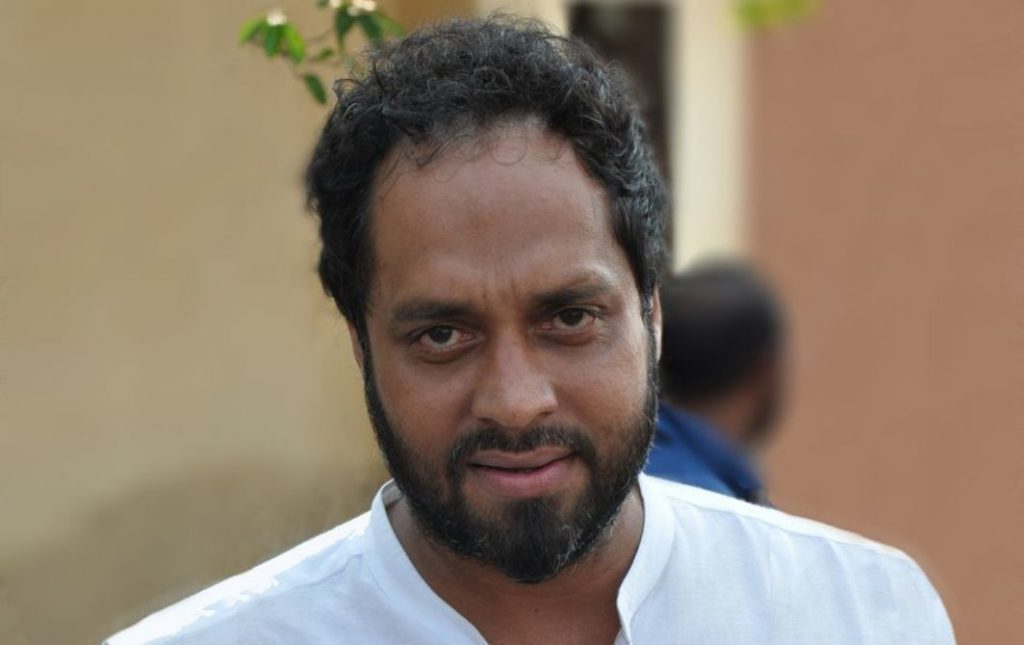People
Facing #MeToo Allegations, the Co-Founder of India’s Kochi-Muziris Biennale Has Temporarily Stepped Down
An anonymous Instagram account has been airing #MeToo complaints against powerful figures in the Indian art world.

An anonymous Instagram account has been airing #MeToo complaints against powerful figures in the Indian art world.

Sarah Cascone

The co-founder and secretary of India’s Kochi-Muziris Biennale, Riyas Komu, has temporarily stepped down following allegations of sexual misconduct. The anonymous handle @herdsceneand, which claims to be “cutting through BS in the Indian Art world, one predator and power play, at a time,” has been posting allegations about several figures in India since October 8, including one about Komu.
In response, the Kochi Biennale Foundation has assembled a committee to investigate the allegations. “Though the foundation has received no formal complaint, we are collectively committed to ensuring zero tolerance to any harassment or misconduct,” said a statement from the biennial. It noted that “Riyas Komu has stepped down from all management positions connected to the biennale until the matter is resolved.”
The anonymous post is attributed to a woman who alleges that Komu invited her to travel to Kochi to discuss a potential project in 2015. While the two were meeting over drinks, “he ran his fingers up my arm and thigh, and asked me, ‘What are you really here for?’” wrote the accuser. At the end of the evening, Komu allegedly offered to walk the woman back to her hotel, where he “pushed me against the wall. He began kissing me and feeling me up while I struggled to even process what the hell was going on. I was so petrified that I just let it happen.”
Komu responded to the allegations on his own Instagram, saying “I’m deeply upset that this incident has been understood and presented in this manner. However, as the person has expressed hurt, I would like here to offer my apologies and I am opening myself to the possibility of a conversation.”
As of press time, neither the artist nor the biennial had responded to artnet News’s request for comment.
“I didn’t want to talk to anyone about what had happened because I was worried that he would destroy my career,” Komu’s accuser, who has said she is a 37-year-old woman, told the Indian Express of her decision to come forward now. “I’ve had to be around him and share space with him at events and while it was slowly destroying me.”
“There is a lot of gatekeeping in the Indian art world and that’s a problem,” read an Instagram message from @herdsceneand to ArtAsiaPacific. “We see a clear divide between older and new generation feminists. This dismissal of assault and harassment by an older generation of women in the art world before the #MeToo movement is something a lot of us have not forgotten. This is a time for introspection and actual change from within institutions, art schools and art world events, as well as at an individual level.”
Now preparing to open its fourth edition, the Kochi-Muziris Biennial bills itself the largest art festival and exhibition in South Asia. It is named after its home city, Kochi, a port city that has maintained much of India’s precolonial cultural pluralism, and the ancient city, Murziris, buried by floods in the 14th century. The biennial aims to promote local culture and traditions, and to make Kochi a center for artistic engagement in India.
Curator Anita Dube is organizing the forthcoming biennial, titled “possibilities for a non-alienated life,” which goes on view December 12, 2018, to March 29, 2019.